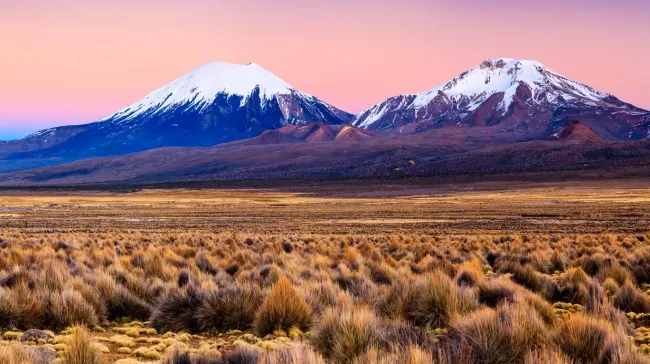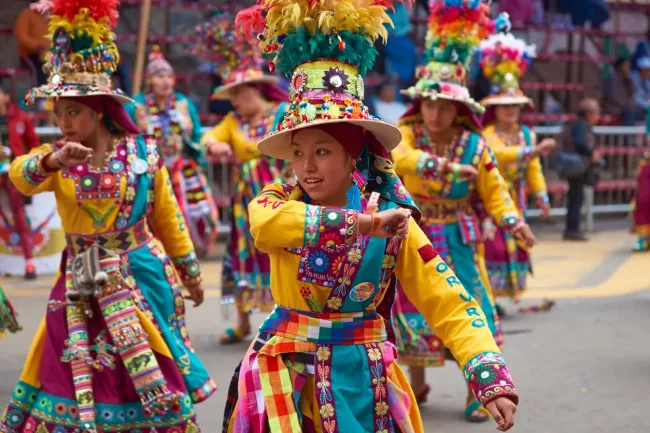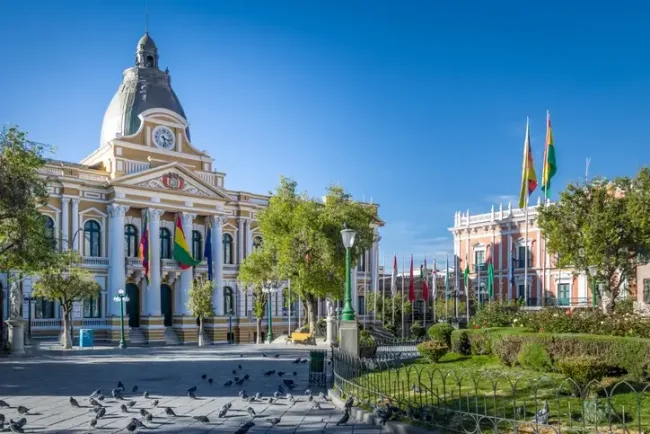
Welcome to Bolivia
Traveling to Bolivia? You may need a visa – find out if you do, which type, and how to apply so you can get the paperwork out of the way and focus on your trip.
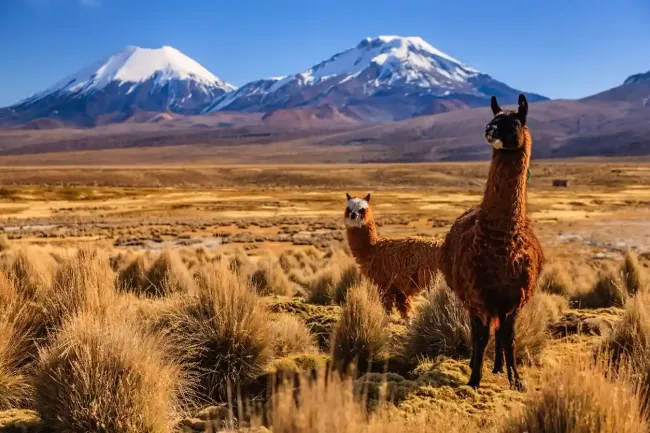
What’s a Bolivia Affidavit of Residence (Declaración Jurada de Domicilio) and who’s it for?
Who’s the Bolivia Affidavit of Residence for?
All travelers and foreign residents wishing to travel to Bolivia have to fill out an Affidavit of Residence, also known as a Declaración Jurada de Domicilio in Spanish.
Note that this isn’t a visa, and those who require a visa must get one separately to this affidavit.
What’s the purpose of a Bolivia Affidavit of Residence?
This document is required to get your entry and exit stamps, as an extra check. If you don’t have the affidavit of residence when you leave Bolivia, you must pay a fine.
How long can you stay with a Bolivia Affidavit of Residence?
You must have this affidavit every time you visit the country. The max. stay depends on your nationality.
Learn more about the Bolivia Affidavit of Residence
What’s a Bolivia Visa on Arrival and who’s it for?
Who’s the Bolivia Visa for?
The visa policy of Bolivia is divided into several groups, which are outlined on the Bolivian Embassy website here:
-
Group 2: Eligible for a tourist visa via the Bolivian Embassy or Consulate or on arrival.
-
Group 3: Not eligible for a visa (on arrival) and required to obtain further authorization from a Bolivian Embassy or Consulate.
Who isn’t eligible for a Bolivia Visa? Visitors from Group 1 countries don’t need a visa to visit Bolivia (see link above).
What’s the purpose of a Bolivia Visa? Tourism.
How long can you stay with a Bolivia Visa?
The max. stay depends on your nationality.
We currently don’t offer Bolivian Visas at iVisa. We recommend checking the validity and eligibility at the nearest Bolivian Embassy or Consulate in your home country.
What are Bolivia’s long-term visa options?
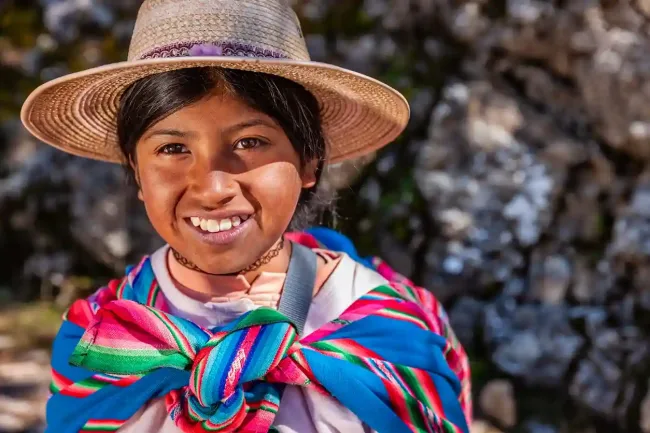
Bolivia offers several long-term visa options for various purposes, such as employment, study, business, and residence.
At iVisa, we don’t currently offer these visas, but you can find more info at your nearest Bolivian Embassy or Consulate.
Staying healthy in Bolivia: Here’s what you need to know
Bolivia has a range of health facilities from public hospitals to private clinics, but standards may differ per region. Here's what travelers should know:
Make sure to stay updated on routine vaccines
-
Keep updated with Bolivia's COVID-19 requirements, such as quarantine, testing, or vaccine certificates, through your airline or Bolivia government website.
-
Ensure your routine vaccines such as measles-mumps-rubella (MMR), diphtheria-tetanus-pertussis, varicella (chickenpox), polio, and your yearly flu shot are up to date.
-
Yellow fever vaccination is recommended for all travelers aged 9 months and older traveling to areas below 2,300 meters, except for areas within the departments of La Paz and Oruro. Some regions require proof of vaccination for entry.
Medical facilities
-
Private clinics are present in Bolivia, especially in major cities like La Paz, Santa Cruz, and Cochabamba, which offer higher-quality care with some English-speaking staff.
-
Public hospitals provide basic care, but they may not meet the standards you're accustomed to.
Health insurance
We’d always recommend taking out health insurance before you travel anywhere from any destination.
Contact your insurance provider before traveling to make sure you have the right level of coverage.
Other things to consider:
-
Trip cancellation, delay, and interruption benefits.
-
Medical expenses and medical evacuation benefits.
-
Baggage coverage.
Things to be aware of when visiting Bolivia
Keep an extra eye on the following to keep healthy and safe during your trip to Bolivia:
1. Altitude sickness: Many parts of Bolivia are at high altitudes. Gradually acclimate, stay hydrated, avoid alcohol, and consider medication if you're prone to altitude sickness. The sun can also be particularly strong in high-altitude areas, so make sure to protect yourself.
2. Water and food safety: Drink only bottled, boiled, or treated water and avoid ice cubes, and eat well-cooked meals, avoid raw vegetables and peeled fruits.
3. Insect protection: Use DEET-containing insect repellents and wear long sleeves and pants to prevent mosquito and other insect bites, especially in the Amazon region.
Medication for personal use
Follow these tips to bring into Bolivia some over-the-counter medicines:
-
Declare all medications: Report all medication for personal use to customs authorities.
-
Original packaging: Always keep medicines in their original containers and transparent bags in your hand luggage.
-
Prescription or doctor's letter: Present the medical prescription issued by your doctor or other competent authority, in English.
-
Check for restrictions: Call Bolivia's Embassy to verify that all of your prescriptions are legal to bring with you.
-
Quantity aligned with itinerary: Bring only a reasonable quantity that aligns with the duration of your stay to avoid complications.
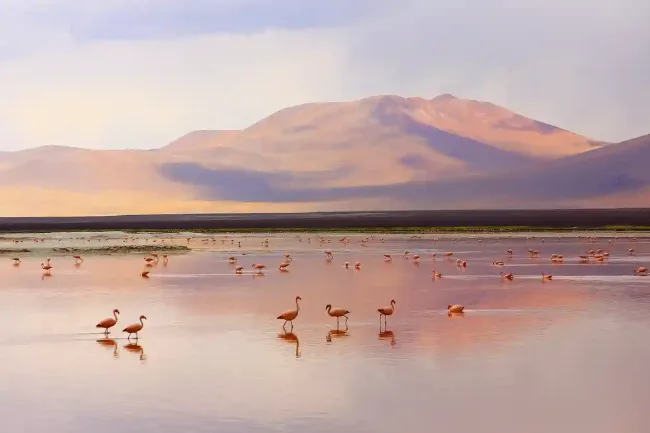

 India Visa
India Visa
 Turkey Visa
Turkey Visa
 United States Visa
United States Visa
 Australia Visa
Australia Visa
 Colombia Visa
Colombia Visa
 New Zealand Visa
New Zealand Visa
 China Visa
China Visa
 Egypt Visa
Egypt Visa
 Vietnam Visa
Vietnam Visa
 Indonesia Visa
Indonesia Visa
